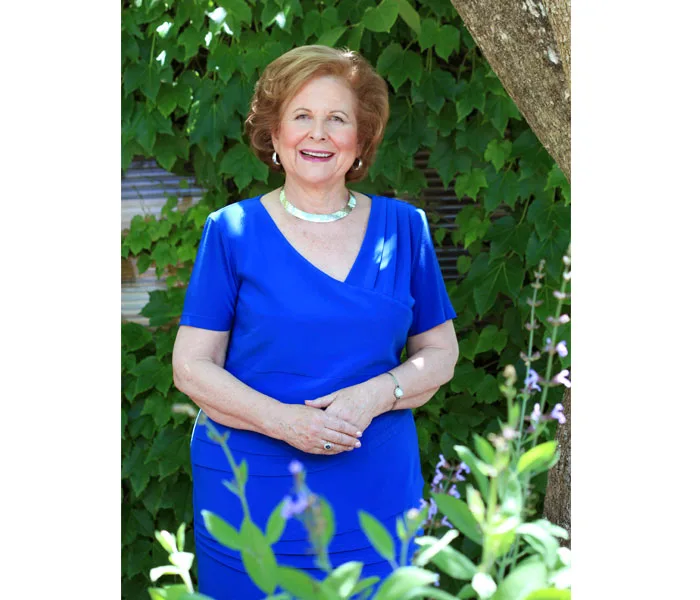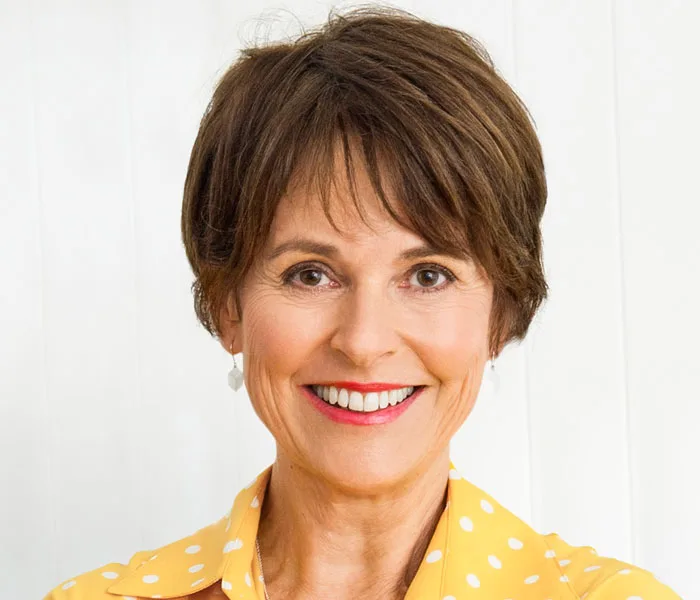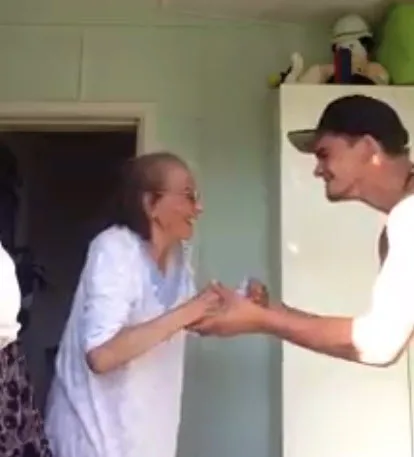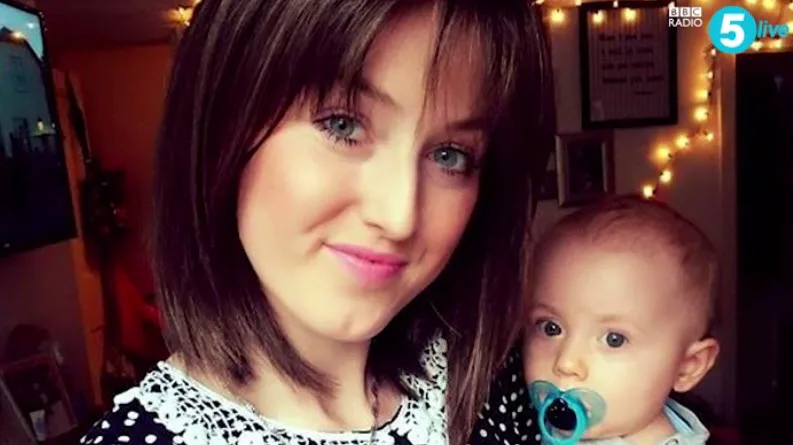Dame Lesley Max has spent the best part of her life trying to make life better for our most vulnerable children. Hers is a powerful voice, a voice of reason and, most crucially, a voice that offers hope. Always prepared to ask the difficult questions, she has from time to time been a thorn in the side of government.
Her devotion to the cause is not to be underestimated. Passionate?
“I hate the word passionate – it makes you sound unhinged,” she says with a warm laugh. “I prefer ‘committed’. My mantra is: ‘Every child, wanted and nurtured.’”
She has received a damehood for her services to children, but Lesley remains refreshingly down-to-earth. We meet at the home she shares with her orthodontic surgeon husband Robert and second son Jamie on the slopes of Auckland’s Remuera. She’s sweeping the porch when I arrive and promptly takes me for a stroll in the garden.
The scent of roses fills the air, a tiny stream trickles in a corner and cheery orange and yellow nasturtiums tumble down the bank.
“We have to focus on the circumstances in which a child comes into the world. This means massively promoting a conscious attitude towards creating a family,” she says. “Children thrive when in a situation of stability and sensitive nurture.”
Lesley is keen to see support given after birth, which focuses on showing the mother and father how to have positive interactions with their baby, promoting patience, gentleness and sensitivity. Gazing, singing and soothing are vital at this time, she says.
Commenting on the situation of children being sent to childcare early so mothers can get back to work, Lesley is adamant: “We can outsource many things, but it’s dangerous territory when we outsource the nurturing of our children, particularly our babies.”

Lesley was born in Auckland as the Second World War came to an end. The youngest of Maurice and Flora Shieff’s three daughters, she grew up in the Auckland suburb of Milford.
Flora and Maurice were both Russian-born Jews who had emigrated here with their parents. Flora was a speech and drama teacher, her daughter Lesley’s beautifully rounded vowels a product of her efforts.
“She coached us in public speaking. ‘Throw your voice, darling, throw it like a ball to the back of the room,’” she’d say.
It’s a technique that’s no doubt come in handy for the many speeches Lesley is called on to make.
Lesley’s father had a massive heart attack when she was just four, which, after ensuing complications, left him an invalid for most of her childhood. He was a manufacturer and importer of menswear, who, like his wife, had a social conscience.
“When he died we received masses of letters from people telling us how he’d helped them,” Lesley remembers. “He was quietly generous. I didn’t have many toys, but I did have one special doll called Patsy. One day a man came to visit my father and I remember Dad saying to me, ‘This man has a little girl who has no toys; would you mind giving her Patsy?’”
Patsy was duly handed over.
The values Flora and Maurice passed on to their daughter, she believes, are common to most of us. She quotes Hamlet – “to thine own self be true” – citing the importance of a good name, honesty and fairness.
Lesley met her husband Robert when she was four. He was among the kids her dad would pick up and take to the ferry so they could attend Hebrew school on Sundays in the city.
“I remember his beautiful green eyes,” she smiles fondly.
They began dating occasionally when she was 15 and married nearly 50 years ago when she was 21.
Her Jewish faith has become a bigger part of her life now than it was in her childhood.
“I think my father wanted to put much of the narrowness of Judaism behind him,” she says.
Also the synagogue was in the city – a big trek from Auckland’s North Shore in the 1940s and 50s.

Judy Bailey.
Now though, Lesley and Robert and their family gather at home every Friday for Kiddush – prayers to usher in the Sabbath. She delights in showing me a video on her phone of her eight-year-old grandson (she has six grandchildren) proudly reciting the prayers by candlelight, ably assisted by his grandfather. It’s a beautiful, close family moment.
She explains the importance of holding onto the faith: “If we take a lax attitude to our heritage, then our identity is gone.”
It was while she was trying to get help for one of her sons that Lesley first became aware of the level of deprivation that existed in New Zealand. She and Robert have four adult children. David lives in New York, Gerard in Melbourne, Shoshana has just moved back from London, and Jamie lives at home with his parents.
Jamie was born with Down Syndrome.
“He presented us with a huge challenge,” Lesley admits. There was not much expectation for Down Syndrome children in the early 70s.
“There was no thought that he could have an education,” she says.
But Lesley knew there had to be something she could do to help her son.
“My mother was a fantastic ally in this, searching the world for information.”
A paediatrician told her, “He will be a very good baby and will be prepared to lie in his cot for hour upon hour, but don’t let him do it. He needs stimulation.”
Lesley taught Jamie to read, thinking that if he learnt to read he might be able to form sentences.
“We had to endure scepticism and put-downs,” she says, but they doggedly persevered. Eventually Jamie became the first Down Syndrome student to attend Auckland Grammar and there, Lesley proudly says, he was awarded a certificate for achievement in History.
Jamie is testament to Lesley and Robert’s love and commitment. He joins us for lunch, contributing to a lively discussion about politics, one of his favourite subjects.
“Jamie has continued to confound us all,” Lesley says with pride.
It was while Jamie was attending a low-decile primary school that Lesley’s focus began to shift to include other children in need.
“I became aware that many children are so disadvantaged, not by their chromosomes but by their social situation,” she tells me.
She went on to write a cover story for Auckland’s Metro magazine, which dared to question the oft-quoted line that “New Zealand is a great place to bring up children”.
Clearly, for many children, it is not. Publishing company Penguin asked her to write on the subject. And what followed was her seminal book, Children: Endangered Species? (published in 1990 and now out of print).
Lesley knew, though, that while it’s one thing to raise issues, it’s quite another to come up with solutions.
In her meticulous way, she researched what was happening elsewhere in the world that was making a real difference to the lives of disadvantaged children. She came up with two major programmes. Firstly, a kind of one-stop shop for parents – a Family Service Centre, based in South Auckland in Papakura.
It’s a place where parents can visit a Plunket nurse, see counsellors, social workers, get budgeting advice, take their children for hearing and vision checks, attend parenting courses and enrol their children in preschool education. It’s a non-threatening, inclusive environment.
“I would have loved to go somewhere like that as a young mum,” Lesley says.
HIPPY is her other brainchild.
“The most effective pathway out of poverty is early childhood education that involves the parents,” she explains.
The Home Interaction Programme for Parents and Youngsters is a home-based scheme that helps parents set their children on the path to success in school. Parents are mentored to work with their children for 15 to 20 minutes a day for five days a week, 30 weeks of the year, for two years. The changes that occur over that time are huge.
It’s not just about reading and writing – both children and parents gain self-confidence, communication skills and, most importantly, they learn to enjoy spending time with each other.
One of Lesley’s prime concerns is to restore the mana of parenting.
“We need a social movement for that purpose,” she says firmly. “This is not a moral judgement. It is purely based on what we know from science and research.”
She quotes the latest research on brain development, which tells us that emotionally responsive nurture, particularly from birth to around three, is vital for the healthy development of the brain.
“We have a shameful level of child abuse and neglect here and it’s not going to be solved by focusing on those at the most vulnerable end, which is current government thinking. Parents are being increasingly sidelined; we can’t reverse the negative statistics if parents are not involved.”
Nearly 30 years ago the British Medical Journal identified parenting as the most important public health issue facing society… not much has changed in the intervening years.
“I greatly appreciate the symbolism of the damehood, but it has not removed the need to fight battles,” Lesley says. “Ake ake!” she cries, fist raised.
This feisty Dame is not done yet.
For more from The Australian Women’s Weekly, follow us on Facebook or Instagram.



